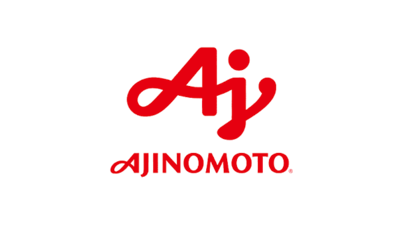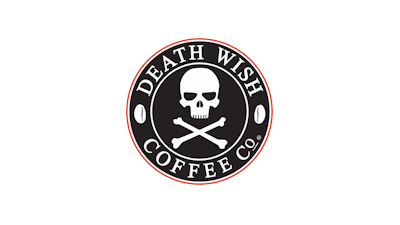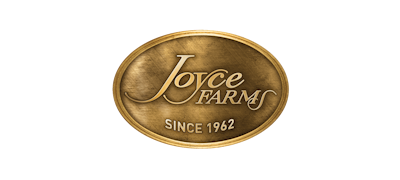Ensuring regulatory compliance and achieving audit readiness are two of the most significant ongoing hurdles food and beverage companies face. These obstacles impact virtually every company across the industry, but for those with additional challenges – such as managing a vast product line – they are even more complex.
For Sokol & Company, a food products supplier with a product line that spans far and wide, keeping up with the FDA’s Food Safety Modernization Act (FSMA) and managing efforts to prepare for audits presented a need for an effective food safety management solution. The company has been operating for more than a century and relied heavily on paper-based systems to manage their Food Safety and Quality Assurance (FSQA) programs. They sought to automate their processes to ensure FSMA compliance and audit readiness.
This guide outlines the ways in which Sokol & Company was able to successfully leverage technology to address some of their most significant challenges and better optimize their resources. The following pages will cover:
- A brief overview of Sokol & Company and its key challenges
- FSMA’s impact on the company
- How Sokol & Company pursued flexibility to align with FSMA
- How the company implemented electronic documentation
- Ways SafetyChain helped Sokol & Company achieve its goals
- How the company plans to leverage SafetyChain moving forward
Company Profile: Sokol & Company Background and Auditing
Having been founded in 1895, Sokol & Company is a company that has stood the test of time. While the food and beverage industry has changed significantly since the company’s inception, it has been able to navigate these shifts with remarkable results.
Based in Countryside, IL, Sokol & Company is housed in a 100,000 square-foot manufacturing warehouse and facility. The company produces a diverse range of products, encompassing foods from sweet to savory. Salsas, jams, anchovy products, and ice cream flavor bases are just a few of the roughly 150 products they produce.
Sokol & Company manages a robust allergy program, along with a variety of certifications to satisfy customer requirements. Some of their products are halal, kosher, gluten-free, or organic, for example. As such, they undergo many audits, both from customers and regulatory parties such as the FDA and SQF (Safe Quality Food). Since some audits are unannounced, it is essential for the company to be in a constant state of readiness.
Despite the challenges of satisfying multiple program requirements across more than 150 products, Sokol & Company has maintained exceptional SQF ratings of 96 or above year after year. They have been SQF level 3 for nine years, and in 2017 were awarded SQF Practitioner of the Year.
FSMA Legislation and Changes
Like most food and beverage companies, Sokol & Company has been impacted by FSMA. Its rules are intended to set safety requirements for facilities that process, package, and store food, thereby affecting a broad range of companies throughout the industry. It was the largest reform of food safety law in more than 70 years, so it is therefore no surprise that a company whose roots date back to the late 1800s faced challenges in terms of preparing for compliance.
FSMA applies to virtually all aspects of the supply chain – from supplier approval all the way to getting the pallet on the truck and out the door. As such, compliance efforts demand careful attention to a multitude of elements across every facet of a company’s operations.
While FSMA bears some similarities to schemes such as SQF, it does have its own unique requirements as well. It requires a Food Safety Plan similar to Hazard Analysis and Critical Control Points (HACCP), but the plan must be designed for the prevention of hazards instead of control. FSMA also requires companies to implement a Food Defense Plan and to have means in place for prevention against food fraud.
For companies like Sokol & Company, having existing food safety and quality programs in place has helped in ensuring preparedness for FSMA. Specifically, being aligned with SQF has given the company a strong foundation for the FDA’s new rules. Nonetheless, preparing for FSMA required a great deal of adaptation and preparation.
Achieving Flexibility to Align With FSMA
Even with their SQF accreditation, the teams at Sokol & Company found that the process of becoming FSMA compliant was tedious. It requires tons of paperwork and time – namely, the time it takes to locate information needed to prepare for audits.
The food safety teams at Sokol & Company also found themselves asking:
- Is it possible for a company that was established in 1895 to adapt to an entirely new set of FDA rules?
- Do we have the right people in place to implement changes to our Food Safety programs?
- Do we have Food Safety Plans that are already in place, and are they correct?
Ultimately, management realized that it would not just be a matter of updating their processes, but also ensuring the right personnel was in place to implement those processes. It was acknowledged that retrieving necessary information to prepare for audits would take time away from day-to-day activities. They therefore sought a solution that would allow them to keep this information at their fingertips, instead of having to track it down at an auditor’s request. Their goal was to make retrieval less labor intensive and more readily available to designated parties.
Another issue Sokol & Company faced was preventing paperwork from becoming misplaced, incomplete, or incorrect. Prior to implementing electronic documentation, the company produced at least 30 documents per line, lot, and product type. Again, they produced more than 150 products, so the sheer volume of paperwork made it very difficult to manage effectively. When an issue arose, documentation would need to be checked and approved, but with so many pieces of paper traveling across such multifaceted operations, it could be challenging for teams to locate and access the proper records. Sokol & Company needed a way to ensure all the missing pieces would be put into place – that no lines would be left blank or boxes would go unchecked. It was impossible to do with a paper-based system
One of the biggest problems I experienced with audits was tackling the paperwork problem. We had a lot of documentation and to fix an issue or address an additional customer inquiry — that’s additional paperwork. So, not only was it hard for our production team to get through everything, it took a really long time to review all the documents and make sure everything’s in spec.
Electronic Documentation Implementation
To mitigate the risks of human error in a paper-based system and solve inefficiencies, Sokol & Company pursued electronic documentation implementation. They used their existing forms and documents and uploaded them into an electronic system, SafetyChain. Because of its seamless integration, data could be transferred from other existing technologies into the platform with ease. They used the system to upload a majority of paperwork indirectly, with very few documents needing to be uploaded manually.
To ensure the system could be used to its fullest potential, Sokol & Company trained teams throughout the facility on how to use SafetyChain. They took specific teams and trained them at different times, familiarizing them with the system in a step-by-step process. While teams found the solution to be user-friendly, they were also able to provide feedback from the floor, which was then factored into enhancements to tailor features to users’ needs and preferences.
Overall, teams were pleased with the system’s ease of use. Its navigation systems are similar to those with which they were already familiar, such as drop-down menus, type-in fields, and check boxes. For teams on the floor, having a quick, direct, handheld mobile solution also proved to be exceptionally helpful.
In fact, the company as a whole has seen stellar results from implementing food safety technology.
The Power of Technology: How SafetyChain Has Helped
Change is never simple, and it cannot happen overnight. Sokol & Company still uses a paper-based approach to manage some aspects of its operations. For the majority of its critical processes, however, technology has aided in the company’s ability to pinpoint issues at the earliest possible stage, reduce hassle, and save time. Here are a few ways SafetyChain has helped:
Reduced Paperwork
While Sokol & Company has yet to fully integrate all of its systems and processes into the SafetyChain platform, Bridgette Krueger, Director of Food Safety and Quality Assurance, estimates that the volume of paperwork throughout the facility has already decreased by 30-50%. While some hard copies of records still remain, they have integrated many elements of recordkeeping into the system.
Streamlined Processes
When Sokol & Company first began the process of implementing technology, they were able to spot some inefficiencies they might not have otherwise recognized. Preparing for integration helped the company get a better handle on its processes and procedures, allowing them to see which elements of their programs were no longer relevant to their goals and needs. It allowed them to make decisions that better align with their strategy and to streamline their food quality and safety operations to support key initiatives, like FSMA compliance and audit readiness.
Real-Time Visibility
According to Krueger, one of the most significant benefits the company has seen since deploying technology is the ability to quickly and precisely identify anything that is out-of-spec. Anytime this happens, Krueger is automatically notified, so she can promptly identify the reason behind the issue and take steps to resolve it. For instance, if equipment breaks or there is a malfunction that leads to out-of-spec results, the problem can be addressed in real time. The incident can then be noted in the system, so that when records are reviewed days, weeks, or months in the future, there is a complete, unalterable log. More importantly, real-time notifications prevent any out-of-spec products from being released.
Audit Readiness
SafetyChain has also made audit readiness more efficient. Krueger notes that the ability to pull records up on the database allows auditors to review information quickly and then move on to something else, whereas the process of retrieving the needed data might have taken much longer in the past. Having information readily available and able to be printed for review if needed also gives auditors the ability to spend more time on the floor.
Additionally, real-time alerts prevent Krueger from discovering missing or incomplete information upon audits. Instead of having to assess why an issue occurred weeks or months ago, the records are already complete, because real-time alerts prompted it to be addressed at the time it took place. With an electronic system, records cannot be hand edited, either. This helps companies ensure a defensible approach to food safety and quality.
Upon seeing the many ways technology has already improved the company’s processes, Sokol & Company teams hope to leverage it even further moving forward.
I’m saving my quality team time, I’m saving myself time, and I’m saving my production staff a ton of time. And finally, I’m getting through audits where I can simply show them; I can pull it up in a database and we look at it for maybe two or three seconds and we move on. This, versus digging through paperwork trying to find what I’m looking for, giving it to the auditor and then potentially seeing issues where something isn’t filled out appropriately, someone didn’t sign off on it, or there’s something left blank.
Looking Ahead: How Technology Can Support Ongoing Improvement
Technology has already transformed many aspects of Sokol & Company’s operations, and they realize there is even further potential to use technology for improvement. Some of the applications the company already has underway or hopes to implement in the future include:
Updating Auditing Codes Within the SafetyChain Platform
Sokol & Company plans to roll out the SQF 3 code within the SafetyChain system so that they can go through the whole code directly within the platform. Thereafter, it will only need to be updated when new revisions to the code are released. Their aim is to reach a point at which they can make changes to accommodate new revisions right within the system. This will allow teams to access program data when auditors come in and have all of the necessary information readily available. If a surprise audit should take place and the FSQA director is out, any individual with the proper credentials can access the system with ease. The system makes it simple to incorporate every element of the program, from pictures to other types of attachments, and access them through user-friendly features like drop-down menus and filters.
Automating Vendor Management
With 150 different products, Sokol & Company relies on many suppliers to provide raw materials. Krueger estimates there are 300-400 folders with suppliers and their approved ingredients. Sokol & Company currently manages its supply chain manually. This means someone within the company must review a spreadsheet each and every day to check for forms that are expiring or outstanding documents. Being able to receive a notification when a certificate is expired or a report is out-of-date would save time and effort while also eliminating the risk of human error.
Krueger says that there is a need for the company to have a master list of each material and where it comes from. Being able to find this information on a centralized repository – instead of sifting through folders – would also result in time savings.
Tracing Document Revisions
Another way in which Sokol & Company plans to leverage technology to support FSQA management is by implementing document control of revisions. Sokol & Company does not have a document coordinator, and therefore is limited in terms of who has the ability to update or fix documentation. The process they currently have in place is cumbersome; a Word file must be opened, edited, converted to a PDF file, then put on a shared drive where the document can be accessed. This approach hinders traceability, making it difficult to determine who has the most recent version and where it is being stored. The task of trying to track down documents can be time consuming; in some cases, they’re stored on someone’s desktop, while in others they might be in a drawer somewhere. The company hopes to use SafetyChain to achieve document control of revisions, update outstanding documents, and create new records, all with the ability to trace revisions through a document’s history.
The technology makes things more efficient, more effective, and easier.
Summary
While each food and beverage company faces its own unique set of challenges, the complexities of achieving audit readiness and ensuring FSMA compliance are shared by the vast majority of the industry. For Sokol & Company, implementing technology has enabled the automation of these traditionally resource-intensive processes. Moving forward, the company will continue to leverage technology to achieve compliance and audit readiness, and ultimately, improve operational performance.
To recap the main points of this case study, here are some key takeaways:
- Sokol & Company faces many of the same challenges shared throughout the food and beverage industry, including FSMA compliance and audits performed by multiple parties. Additional challenges include managing a robust line of more than 150 unique products and a large volume of paperwork.
- As many other companies did, Sokol & Company originally questioned whether it had the proper resources in place to prepare for FSMA. The company recognized the need to do more with less: using its existing resources, it would have to develop and manage a Food Safety Plan to satisfy the FDA’s new rules. Its existing SQF programs provided a stable foundation, but a need to streamline processes to ensure compliance and audit preparedness remained.
- By implementing electronic documentation, Sokol & Company was able to reduce its volume of paperwork by 30-50%. Teams were trained on the system and provided feedback so adjustments could be made to meet the specific demands of working in a unique environment, the plant floor.
- SafetyChain helped Sokol & Company achieve a number of critical outcomes, including reduced paperwork, streamlined processes, real-time visibility, and audit readiness.
- In the future, Sokol & Company plans to take even fuller advantage of SafetyChain’s solutions, using it for tasks like updating audit codes directly within the platform, automating vendor management, and tracking document revisions.
Clearly, deploying technology helped Sokol & Company manage its FSQA operations, despite having so many complex variables to contend with. Safety Chain’s real-time alerts and centralized record repository have helped to modernize the operations of a company whose inception dates back more than 120 years. As a result, it has achieved better visibility, a higher degree of audit readiness, and more effective and secure data management. Although every company has specific characteristics that play a role in how it leverages technology, the advantages of using modern solutions to overcome industry challenges can be realized by all organizations, regardless of their unique set of circumstances.


